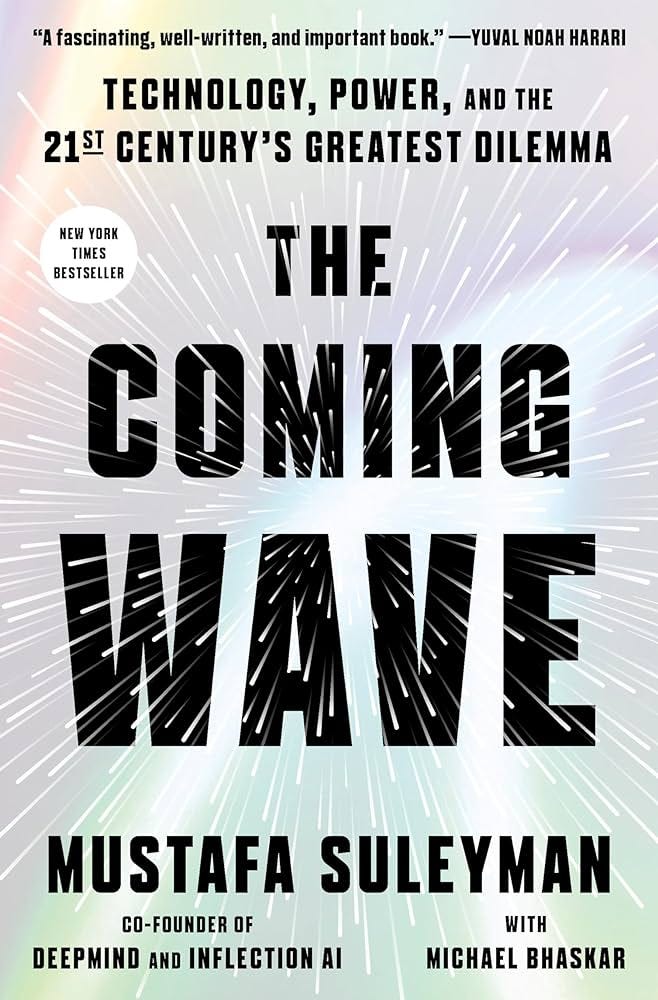Rethinking Emotional Intelligence in Computing: Insights from “The Coming Wave”
 Ezaan Amin
Ezaan Amin
In my last blog post, on “Emotional Intelligence in AI: Bridging the Gap Between Machines and Human Emotions,” I specifically explored the idea of combining emotional intelligence with artificial intelligence (AI). I was convinced then that machines must learn how to feel for us in order to prevent some of the dire consequences our own innovations or inventions might impose on society, given how quickly AI was moving forward. This approach was essential not only in terms of practicability, but also necessity for human progress.
Nevertheless, I had a significant change in mind after reading “The Coming Wave by Mustafa Suleyman: the Instant Sunday Times Bestseller from the Ultimate AI Insider”. From Suleyman’s keen probe into what artificial intelligence is going through, I realized that my former position could be wrong. While Suleyman was exploring the AI path well, I realized that I may have been wrong at first. It is not about making machines have human-like emotions; instead, it asks for a whole different approach.
Let’s disuse what is the coming wave as the book describe it
A coming wave is an emerging cluster of related technologies centered around AI and synthetic biology whose transformative application will empower human kind and present unprecedented risk
A lot of important things written a small sentence but for this blog i wanted to focus on synthetic biology and the relationship it will have with AI and what holds in the future.
Synthetic biology a field of science that involves redesigning organisms for useful purposes by engineering them to have new abilities
I used to think mostly about incorporating EQ (emotional intelligence) in AI computing systems such as bots specializing in customer service but it has dawned on me that it may not be the best way to go about it. I am no longer of the opinion that the best way to augment EQ into AI is simply to integrate it into its architecture hence our focus needs to shift towards a broader vision- merging human beings with computerized systems.
Although this idea may seem radical initially yet it should be borne in mind that some twenty-four years ago, most of us would have thought it impossible to make some of the technological improvements we enjoy today. Our strides in technology have surpassed predictions constantly challenging the possibility of integrating people with machines.
Neuralink has recently made significant breakthroughs in this domain under the leadership of Elon Musk who developed a chip which helped a paralyzed man play chess using only his thoughts. The experiment was successful, thus marking an enormous stride made towards combining human abilities with sophisticated technology.
The possibility are endless.
To sum up, my initial line of thought was that it would make sense if I included emotional intelligence in AI projects. I have realized with time that the right way of establishing a closer human-al computer link does not depend on machines that are able to feel in the same way that we do but rather requires that we join our powers together with their own capabilities. At such a time when ground-breaking technological progress is nigh, we need to be more accommodative, considering what changes lie ahead are critical points to consider. In conclusion, my original idea involved incorporating emotional intelligence into AI. However, my view has changed over time. Rather than developing emotionally humanlike machines, we should link our abilities. We are at the point of great technological achievements where we have to be open minded and accept that things will be different in the future. AI and biotechnology’s future not only promises to reshape how we interact with technology but also redefine the very essence of human potential
Subscribe to my newsletter
Read articles from Ezaan Amin directly inside your inbox. Subscribe to the newsletter, and don't miss out.
Written by

Ezaan Amin
Ezaan Amin
Hey there! I'm Ezaan Amin, a dedicated student and MERN Stack Developer with a passion for technology, particularly in web development and machine learning. I'm committed to refining my skills and contributing positively to the tech sector. During my academic journey, I've undertaken various projects, including developing a comprehensive restaurant management system over 6 months (3 months for the admin app and 3 months for the user-facing app) and creating a social media platform focused on mental health awareness within 4 months. These experiences have provided me with valuable insights into software development, data analysis, and machine learning techniques. In addition to these projects, I have completed several smaller projects, such as a real-time chat application and a personal finance tracker, each within a 2-month timeframe. These projects have strengthened my skills in front-end and back-end development, database management, and user experience design.